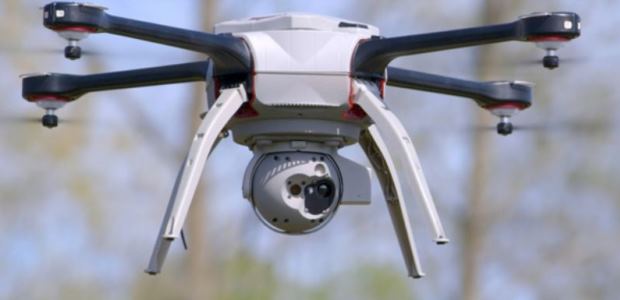
Senate Passes FAA Reauthorization Bill
Leaders of the Senate Committee on Commerce, Science, and Transportation Committee said the bill reauthorizing FAA through FY2017 contains provisions to encourage the responsible use of drones. For example, Section 2134 of the bill would prohibit drone users from interfering with emergency response activities and would raise civil penalties to a maximum of $20,000 for violation of the law.
The U.S. Senate passed the Federal Aviation Administration Reauthorization Act of 2016 by a vote of 95-3 on April 19, encouraging leaders of the Senate Committee on Commerce, Science, and Transportation to call on the House of Representatives to pass the measure. U.S. Sen. John Thune, R-S.D., who chairs the committee, said the the bill "does more to enhance security against the threat of terrorism and help frustrated passengers than any proposal in recent history," adding, "We should not delay action on security enhancements in this bill or public safety benefits from the proper management of drones. The FAA bill answers these challenges while providing passengers with more options when airlines don't deliver."
The bill reauthorizes FAA through fiscal year 2017. "We've given the House a good bipartisan blueprint to follow and one that they ought to pass easily," said U.S. Sen. Bill Nelson, D-Fla., the committee's ranking member. "Adding controversial measures could put the bill in jeopardy and result in a big loss for consumers and for the safety of the flying public."
The bill includes new requirements for the bulk transfer of lithium batteries, mental health screening and records retention for commercial pilots, and improving communicable disease preparedness. Its provisions for unmanned aircraft systems (drones) direct the National Institute of Standards and Technology to facilitate the development of consensus standards for remote identification of drones and submit a report to Congress, after which FAA would issue regulatory guidance implementing the standards. It also would require FAA to set up a public database of government and commercial operators authorized to operate drones in the national airspace, with the database including information about the collection, retention, use, and access to personally identifiable information collected via drones, if applicable. This section also would require public aircraft operators to disclose additional information about the location, timing, and purpose of flights and the technical capabilities of the aircraft flown.
Also in the bill is a direction that NIST and the FAA, in consultation with other stakeholders, develop consensus industry standards on drone aircraft safety and that FAA establish a process for the airworthiness approval of small drones based on the consensus standards.
Section 2130 of the bill, Unmanned Aircraft Systems Aeronautical Knowledge and Safety, contains a requirement for the development and implementation of an aeronautical knowledge and safety exam that all drone operators would have to complete, except that FAA could waive the exam requirement for operators of
aircraft weighing less than 0.55 pounds or for drone operators under age 13 who are under the supervision of an adult.
Section 2134 would prohibit drone users from interfering with emergency response activities and would raise civil penalties to a maximum of $20,000 for violation of the law.